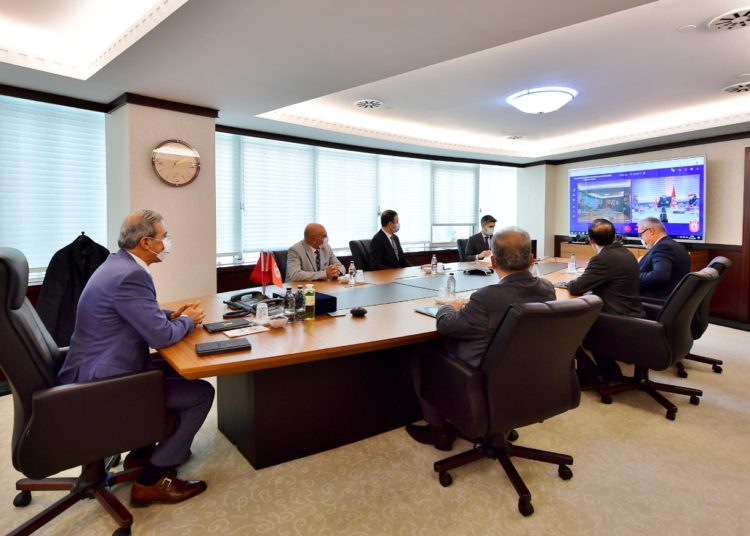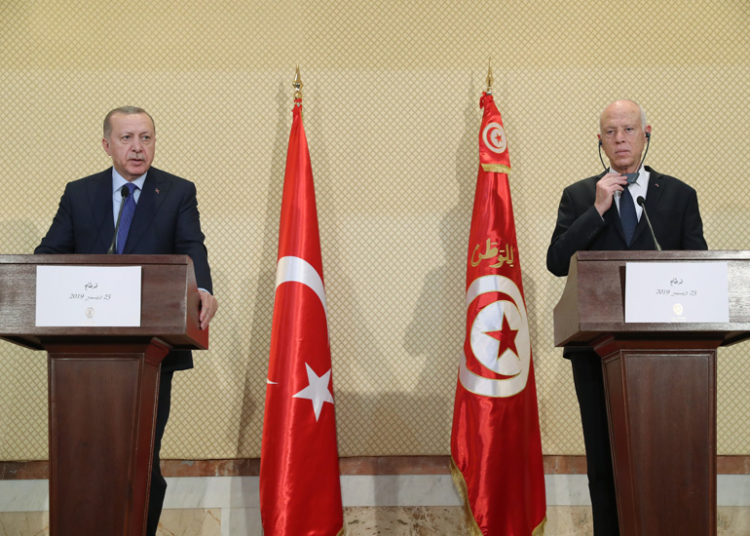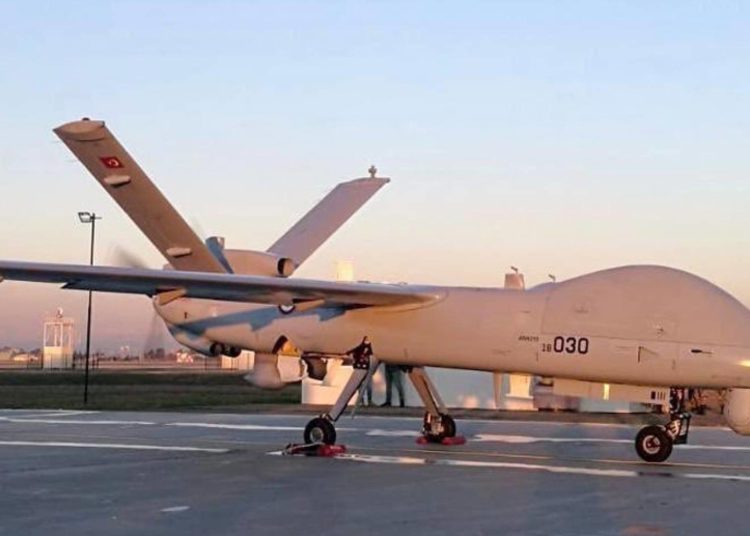Nordic Monitor
Turkey is increasing its role in the evolution of the Tunisian military by seeking to deepen defense industry ties and step up its military equipment exports to the North African country.
Turkey’s Defense Industries Presidency (Savunma Sanayii Başkanlığı, or SSB) recently announced that Tunisia has become the first export customer of Turkey’s Anka-S Unmanned Aerial Vehicles (UAV) and that five Turkish companies exported $150 million in products to the country in 2020.
“Turkish Aerospace Industries’ [TAI] Anka-S UAVs, BMC’s Kirpi [mine-resistant ambush-protected vehicle], Nurol Makina’s Ejder Yalcin armored vehicles, Katmerciler’s various vehicles including tanker trucks and tank carriers, and ASELSAN’s electro-optic systems will be in the service of Tunisia’s security forces,” Ismail Demir, head of the SSB, tweeted following an online meeting with Tunisian officials.
Turkish-Tunisian defense industry cooperation was boosted after a surprise visit by President Recep Tayyip Erdoğan to Tunis on December 25, 2019 to discuss cooperation in neighboring Libya.
The Turkish government sees Tunisia as an important location for accessing Libya and aims to use country’s territory for its operations in Libya. Citing Turkish media reports, Greek daily To Vima reported that Erdoğan had asked his Tunisian counterpart, Kais Saied, to give Turkish warships access to a port in Tunisia.

The Tunisian Ministry of Defense has signed a contract valued at almost $80 million with TAI for the purchase of three Anka-S (Phoenix) combat drones, Turkish media reported. The contract includes three combat drones in addition to three ground control systems and the training of 52 Tunisian Air Force personnel.
The financing of the exports will be provided through Türk Eximbank, Turkey’s export credit agency. According to the Turkish media, the bank will provide $80 million in loans to Tunisia.
Anka-S is the serial production variant of the Anka medium-altitude, long-endurance (MALE) UAV, which was developed by TAI for the Turkish armed forces.
Anka-S can conduct a range of missions such as real-time intelligence, surveillance, reconnaissance, communication relay, target acquisition and tracking. It can also carry weapons such as the Roketsan Smart Micro Munition’s air-launched missile launcher and the Cirit 2.75-inch guided rocket pod in its two underwing weapons stations to engage light-armored vehicles, personnel, military shelters and ground radar stations.
Performing its maiden flight in September 2016, Anka entered serial production in 2017. The first batch of two Anka-S UAV systems was delivered to the Turkish Air Force in February 2018.
Turkey has become a key market for the purchase of armed drones including the Anka-S and the lighter UAV Bayraktar TB2, which have proven their capabilities in Syria, Iraq and Libya and in the recent conflict between Armenia and Azerbaijan.
Between February 27 and March 5, Turkey conducted Operation Spring Shield to halt the Syrian Arab Army’s blitz offensive in Idlib and to press Moscow into brokering a ceasefire. In addition to the loses of the Syrian army, Turkey’s UAVs destroyed a number of Russian Pantsir and Buk air defenses within a week. Turkey, however, lost a pair of Anka-S long-endurance drones along with a few lightweight Bayraktar TB2.
The Bayraktar TB2, manufactured by Turkish company Baykar Makina, successfully test-fired a rocket for the first time in December 2015.

TAI, part of the Turkish Armed Forces Foundation (TAFF) and controlled by the Turkish government, is one of the largest defense companies in Turkey and is among the top 100 defense contractors globally. Besides its indigenous project, TAI has been designing and producing composite parts for the leading global aviation companies like Airbus and Boeing.
In August the US-based Defense News magazine listed seven Turkish defense companies — TAI, military electronics specialist Aselsan, missile maker Roketsan, armored vehicles maker BMC, military technologies specialist STM, armored vehicle maker FNSS and military software specialist Havelsan — in its list of top 100 global firms with the highest defense revenue.
TAFF was founded in 1987 to “enhance the combat strength of the Turkish Armed Forces” and has played a leading role in the establishment and development of the defense industry. In addition to TAI, TAFF directly or indirectly controls major companies such as Havelsan (informatics), Aselsan (electronics), Roketsan (rockets and missiles), Isbir (generators and alternators) and Aspilsan (battery pack products).












